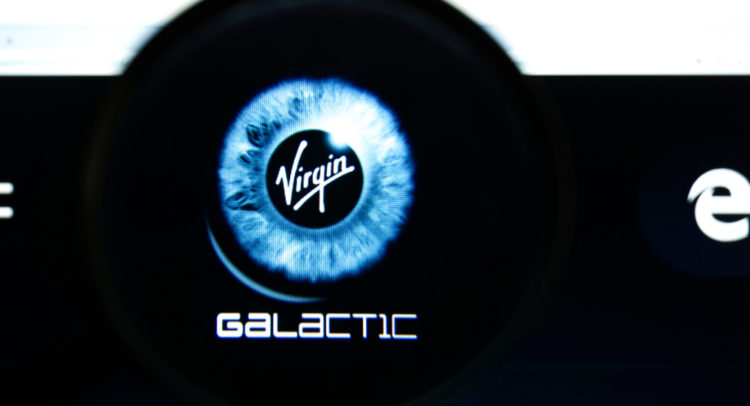Founded by Sir Richard Branson, Virgin Galactic (SPCE) is a vertically integrated aerospace company that is supposedly innovating human spaceflight for individuals and researchers. The company is also a manufacturer of state-of-the-art air and space vehicles.
Invest with Confidence:
- Follow TipRanks' Top Wall Street Analysts to uncover their success rate and average return.
- Join thousands of data-driven investors – Build your Smart Portfolio for personalized insights.
In October of 2021, I warned investors that Virgin Galactic was not worth the risk and that the stock should be avoided as the company suffers from fundamental business model gap holes. Since then, the stock has plummeted from around $20.00 to just $9.72 today.
In my view, the company continues to face the same fundamental problems without any apparent solutions or turnaround plans on the horizon. Because the stock has a “meme” status attached to it which could lead to parabolic share price movements (e.g., following a short-squeeze), I would not be shorting Virgin Galactic. Hence, this is why I remain neutral on the stock and avoid it altogether.
Fundamental Problems Remain
Virgin Galactic’s business model seemingly revolves around the usage of its proprietary and reusable technologies to develop a spaceflight system developed to offer customers (referred to as “future astronauts”) a special, multi-day, transformative experience.
This includes a spaceflight that offers views of Earth from space and a few minutes of weightlessness, set to launch from Spaceport America, New Mexico. The company demonstrated its ability to achieve this by sending Sir Richard Branson and his team to the edge of space last summer.
While this sounds rather exciting, Virgin Galactic’s financial profile remains a parody. The company’s Q3 earnings reminded investors that the company is still in a pre-revenue stage, with multiple uncertainties ahead and little to no data shared regarding the road towards growth and profitability.
The $2.6 million in revenue that Virgin reported for the period was attributable to sponsorship revenue generated from its Unity 22 spaceflight in July 2021 and revenue earned under government contracts from advancement on the completion of specific technical milestones related to payload services. No revenues were attributable to ticket sales.
As of late October, the company had received reservations for more than 700 spaceflight tickets and gathered more than $80 million in future astronaut deposits. While this sounds like a promising number that the company could recognize in the future as revenues, there is no way to what the future interest for these flights beyond the first “future astronauts.”
With a single ticket costing around $450,000, the company’s total addressable market may be depleted soon after the first few flights. This is assuming that the company is able to execute multiple flights successfully.
Further, with the company’s business model being very capital intensive and R&D-demanding, Virgin keeps draining its cash reserves. Virgin’s GAAP EPS during Q3 was -$0.32, losing $48.8 million in total.
If Virgin keeps losing this much money at its current pre-revenue stage, then scaling the actual business will require additional cash, which is likely to further postpone profitability. Also, who is to say that the business model’s margins will even be meaningful in the first place by then?
The company ended the quarter with around $1 billion in cash and equivalents. How did they grow the cash position so much quarter-over-quarter? They massively diluted shareholders by selling around $500 million worth of shares.
Earlier in January, Virgin also priced a $425 million convertible notes offering, which is set to further dilute shareholders in the future while additionally stretching the company’s apparent need for cash and lack of a sustainable path to profitability in the short-to-medium term.
At its current rate of losses and accumulating liabilities, I wouldn’t be surprised if Virgin Galactic ended up a penny stock in the next few years.
Wall Street’s Take
Turning to Wall Street, Virgin Galactic has a Hold consensus rating, based on three Buys, two Holds, and two Sells assigned in the past three months. At $23.29, the average Virgin Galactic price target implies 139.6% upside potential, nonetheless.

Conclusion
Overall, I believe that major risks remain regarding the sustainability of Virgin Galactic’s business model. With an unclear path to profitability and an ambiguous business model, it’s better for investors to continue avoiding the stock, in my view.
Download the TipRanks mobile app now
To find good ideas for stocks trading at attractive valuations, visit TipRanks’ Best Stocks to Buy, a newly launched tool that unites all of TipRanks’ equity insights.
Read full Disclaimer & Disclosure









